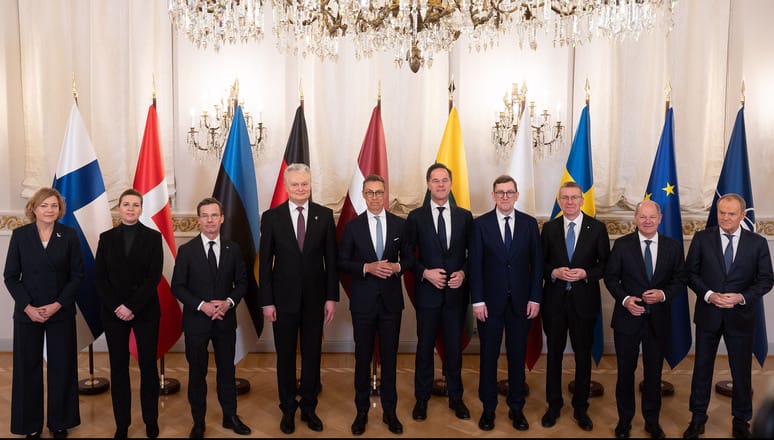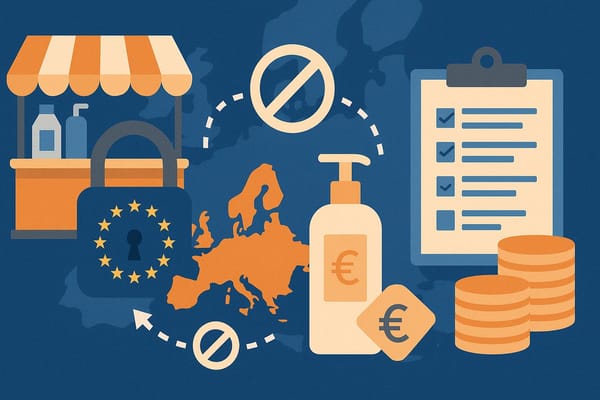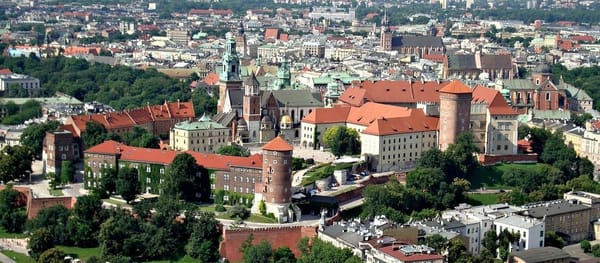
NATO launches 'Baltic Sentry' patrols to counter infrastructure attacks
NATO deployed a multinational flotilla off the Estonian coast at the weekend to defend undersea infrastructure in the Baltic Sea amid escalating concerns of sabotage.
Baltic Sentry aims to deter hybrid threats targeting power cables, pipelines, and data lines crucial to the region’s stability. Dubbed the “security camera of the Baltic” the establishing of the mission follows recent incidents of suspected sabotage, including damage to the Balticconnector gas pipeline, the Estlink 2 power cable, and numerous communication cables.
On 25 December 2024 the Estlink 2 submarine power cable failed, reducing the Estonia-Finland cross-border capacity from 1,016MW to 358 MW. Later on Christmas Day, authorities were informed of disruptions to four telecommunications cables. Two cables of Finnish telecommunications company Elisa were severed, until it completed repairs on 6 January, 2025.
Baltic Sea nations are on high alert for acts of sabotage since Russia invaded Ukraine in 2022. Investigators believe the Cook Island-registered ship may have caused the damage by dragging its anchor along the seabed. Estonian Foreign Minister Margus Tsahkna said: “damage to subsea installations in the region has now become so frequent that it is difficult to believe this was caused merely by accident or poor seamanship”.
NATO officials and local security experts alike say these actions may be part of a broader effort by Moscow to undermine the region as the Baltic countries prepare to fully disconnect from Russia’s energy grid in February and integrate with Europe’s network.
Russia suspected of attacks
Finnish authorities suspect that the seized oil tanker Eagle S believed to be part of the Russian shadow fleet had intentionally caused the cable ruptures by dragging its anchor. The ship is suspected of aggravated vandalism, regulatory offences and communication interference, with costs running into tens of millions of euros.
NATO said the new taskforce means that any vessel attempting to sabotage infrastructure will face serious consequences, including boarding, impoundment, and arrest. “Ships leaving St. Petersburg know they are being watched,” Commander Erik Kockx told UK daily The Guardian.
Legal measures are also being introduced to ensure accountability and prosecution for those responsible for damaging infrastructure, including strengthening enforcement mechanisms against suspected vessels, such as inspections of insurance certificates, and expanding sanctions against malicious actors.
Estonian Military Intelligence Chief Colonel Ants Kiviselg told regional defence website The Baltic Sentinel that “sabotage of critical infrastructure has been an urgent topic in Estonia and neighbouring countries since 2023, and intelligence agencies have shared information on it.
“If we come across information indicating a potential threat inside Estonia or in territorial waters, we inform other security agencies. This information exchange works both ways. Other security agencies inform us when they receive relevant military information from across the border,” he added.
“Russia has ambitions to dictate the terms in our region, and China has similar goals in its region. We see a convergence of interests and some cooperation between Russia and China. From a military perspective, we monitor whether Russia and China are exchanging military technology or knowledge. In that sense, China is within our scope of interest but not as prominently as Russia,” according to Kiviselg.
Summit laid groundwork
Leaders from Estonia, Latvia, Lithuania, Poland, along with NATO Secretary General Mark Rutte and EU Executive Vice-President Henna Virkkunen, gathered on Tuesday 14 January 2025 to address threats to critical undersea infrastructure at the Baltic Sea NATO Allies Summit.
At the event, held in the Finnish capital Helsinki, Estonian Prime Minister Kristen Michal, Polish Prime Minister Donald Tusk, Latvian President Edgars Rinkevics, Lithuanian President Gitanas Nauseda issued a joint statement in the presence of NATO Secretary General Mark Rutte and Executive Vice-President of the European Commission Henna Virkkunen,
They wrote “We, the Heads of State or Government of Denmark, Estonia, Finland, Germany, Latvia, Lithuania, Poland and Sweden, have met today in Helsinki, in the presence of the Secretary General of NATO and the Executive Vice President of the European Commission, to address the recent increase in serious incidents damaging critical undersea infrastructure in the Baltic Sea.”
The summit focused on the increasing vulnerability of vital infrastructure, such as cables and pipelines, to sabotage and reckless actions. The other signatories were Finnish President Alexander Stubb, Danish Prime Minister Mette Frederiksen, Federal Chancellor of Germany Olaf Scholz, and Swedish Prime Minister Ulf Kristersson.
The Baltic leaders expressed concerns over the vulnerability of undersea infrastructure, pointing to a growing pattern of hybrid warfare in the region. “Disrupting our desynchronisation from Russia’s grid could create chaos and undermine trust in Baltic governments,” Tomas Jermalavicius, a defence analyst in Tallinn, said.
Hybrid threats in NATO focus
The repeated damage to undersea infrastructure, including the Estlink 2 power cable, has fueled concerns over hybrid warfare tactics. NATO officials and Baltic leaders point to Russia’s potential role in these incidents as part of its broader strategy to destabilise the region, particularly ahead of key energy grid decoupling milestones.
The summit reaffirmed the determination of the participating nations to respond decisively to any attack on undersea infrastructure. As tensions rise, the Baltic Sentry mission underscores the strategic importance of protecting undersea infrastructure in a region critical to NATO’s defence and Europe’s energy security.




